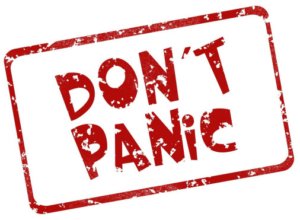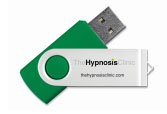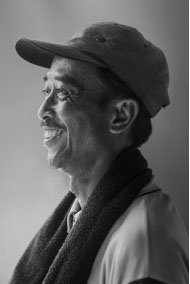Everyone feels anxious from time-to-time; whether it’s prior to a job interview, an exam or a test. Maybe even wedding nerves, a big meeting or visiting the dentist.
Theses states of heightened awareness are generally temporary, and can leave as soon as the stimulus causing the problem has gone. But what if the feelings stay? Like around 8% of the UK population, you may be suffering from a more generalised anxiety disorder of GAD.
 What will I learn in this blog?
What will I learn in this blog?
• That anxiety can have many forms and varieties
• Some people are more likely to be anxious than others
• Looking at the cause of anxiety is often useful
• How hypnosis could help you conquer those feelings
What are the symptoms of generalised anxiety?
Some or all of the following maybe things you have noticed:
• A churning feeling in your stomach
• Feeling light-headed or dizzy
• Pins and needles
• Feeling restless or unable to sit still
• Headaches, backache or other aches and pains
• Faster breathing
• A fast, thumping or irregular heartbeat
• Sweating or hot flushes
• Sleep problems
• Grinding your teeth, especially at night
• Nausea (feeling sick)
• Needing the toilet more or less often
• Changes in your sex drive
• Having panic attacks.
According to MIND, generalised anxiety disorder means having regular or uncontrollable worries about many different things in your everyday life. Because there are lots of possible symptoms of anxiety this can be quite a broad diagnosis, meaning that the problems you experience with GAD might be quite different from another person’s experiences.
The anxious feelings you have are almost entirely your own personal experience and unique to you. And as long as they cause you some discomfort, they are important to correct, so that you can live a life that is free from worries and concerns that are out of proportion to reality.
Anxiety can be in many forms, here are just a few:
Social anxiety – this means you experience extreme fear or anxiety triggered by social situations (such as parties, workplaces, or everyday situations where you have to talk to another person). It is also known as social phobia.
Panic disorder – this means having regular or frequent panic attacks without a clear cause or trigger. Experiencing panic disorder can mean that you feel constantly afraid of having another panic attack, to the point that this fear itself can trigger your panic attacks.
Phobias – a phobia is an extreme fear or anxiety triggered by a particular situation (such as going outside) or a particular object (such as spiders).
Post-traumatic stress disorder (PTSD) – this is a diagnosis you may be given if you develop anxiety problems after going through something you found traumatic. PTSD can involve experiencing flashbacks or nightmares which can feel like you’re re-living all the fear and anxiety you experienced at the time of the traumatic events.
What causes anxiety?
 There’s no one cause of anxiety, but it’s generally thought that life experiences like some kinds of traumatic events may cause anxiety in people who are already prone to it. There may also be a genetic pre-disposition to being anxious.
There’s no one cause of anxiety, but it’s generally thought that life experiences like some kinds of traumatic events may cause anxiety in people who are already prone to it. There may also be a genetic pre-disposition to being anxious.
According to The Mayo Clinic, these factors may increase your risk of developing an anxiety disorder:
Trauma. Children who endured abuse or trauma or witnessed traumatic events are at higher risk of developing an anxiety disorder at some point in life. Adults who experience a traumatic event also can develop anxiety disorders.
Stress due to an illness. Having a health condition or serious illness can cause significant worry about issues such as your treatment and your future.
Stress buildup. A big event or a buildup of smaller stressful life situations may trigger excessive anxiety — for example, a death in the family, work stress or ongoing worry about finances.
Personality. People with certain personality types are more prone to anxiety disorders than others are.
Other mental health disorders. People with other mental health disorders, such as depression, often also have an anxiety disorder.
Having blood relatives with an anxiety disorder. Anxiety disorders can run in families.
Drugs or alcohol. Drug or alcohol use or misuse or withdrawal can cause or worsen anxiety.
How do we take back control?
Here are some great ways to help beat anxiety from the NHS.
• Try talking about your feelings to a friend, family member, health professional or counsellor.
• Use calming breathing exercises
• Exercise – activities such as running, walking, swimming and yoga can help you relax
• Find out how to get to sleep if you’re struggling to sleep
• Eat a healthy diet with regular meals to keep your energy levels stable
• Consider peer support, where people use their experiences to help each other. Find out more about peer support on the Mind website
• Listen to free mental wellbeing audio guides
• Search and download relaxation and mindfulness apps
There are also some very important things NOT to do!
• do not try to do everything at once – set small targets that you can easily achieve
• do not focus on the things you cannot change – focus your time and energy into helping yourself feel better
• do not avoid situations that make you anxious – try slowly building up time spent in worrying situations to gradually reduce anxiety
• try not to tell yourself that you’re alone; most people experience anxiety or fear at some point in their life
• try not to use alcohol, cigarettes, gambling or drugs to relieve anxiety as these can all contribute to poor mental health
How does hypnotherapy help anxiety?
Hypnotherapy works from 2 different directions, firstly to look and see what has actually caused the anxious behaviour in the past, and then to give you the tools you need to be able to fight that anxiety by increasing your feelings of calmness, physical relaxation and control.
You see, what often happens with anxiety is that we get a circle of behaviour that gets out of control. Firstly, concentrating on the thing that makes you anxious makes you … well, anxious! That continued concentration can turn a small puddle of worry into a massive sea of anxiety; your mind becomes a stressful place, where the anxious thoughts seem to dominate all the other, more tolerable thoughts.
This has a knock-on effect on your body; it goes into ‘fight or flight’ mode, your muscles tense, blood pressure increases, heart rate goes up, digestion slows down, your senses heighten, it’s as if the body is preparing for some really physical challenge.
This tsunami of physical tension and mental torment crush confidence, reality and perspective, often to the extent that it can lean to a full-blown panic attack, where the person effectively shuts down.
Now, that vicious circle is very powerful, as one thing feeds of another, so, using hypnotherapy, we use that structure, but turn it on its head to make a ‘virtuous’ circle.
In this, we use hypnotic techniques to increase some of the things you need to be able to rationalise that is happening to you when you start to get anxious, and do something about reversing the trend before it becomes a full-blown life challenging event.
Calmness is the antidote to anxiety. When your mind is calm, you see things in their true perspective, and with their correct levels of meaning. Because your outlook is more rational, thinking and optimistic, it prevents the negative thoughts from getting a hold and taking you someplace you don’t want to go.
Now, there is a side-effect of being calm, and it’s that your body relaxes. No longer at DEFCON 1 and under attack, your muscles relax, your heart rate and blood pressure are adequate and you feel at ease with yourself.
Of course, there is natural effect from feeling and being calm and relaxed, and that’s confidence. The too main ingredients of confidence are mental calmness and physical relaxation, when you think about times in your life that you’ve been most confident, they have always been when you felt calm and relaxed.
Confidence naturally leads to feeling and being more competent. So you can see things more clearly with the correct level of meaning with true importance. And because your mind is calm, your body is relaxed, you feel confident, you see things in their perspective. The quality of your natural sleep also becomes progressively better and better, so that you wake up in the morning feeling and being calm, relaxed, in charge, in control, happy and at ease.
 In the sessions, you are taught to relax to a very deep level and you can also have a specially-recorded self-hypnosis session. To use at home, then you can gradually replace the old feelings with the new ones, until they just feel right.
In the sessions, you are taught to relax to a very deep level and you can also have a specially-recorded self-hypnosis session. To use at home, then you can gradually replace the old feelings with the new ones, until they just feel right.
It’s important to find a therapist that respects your confidentiality, so that you feel comfortable telling them all about your issues.
Remember, your exterior world is a reflection of who you are on the inside. To change your outer world, you have to change your inner world. That’s where hypnosis really comes in.
To find out more about hypnosis and how it works, have a look here: https://thehypnosisclinic.com/what-is-hypnosis/
CASE STUDY 1 – Anxiety
 John Juno had been suffering from depression and anxiety for many years, it was even affecting his sleep? Could hypnotherapy be the answer to his problems?
John Juno had been suffering from depression and anxiety for many years, it was even affecting his sleep? Could hypnotherapy be the answer to his problems?
“Great experience. Quite nothing that I’ve ever experienced. Like anything that is outside of traditional medicine, I approached this with a bit of skepticism but when I fully committed to getting this done and put my faith in Jonathan I was able to slowly overcome sleep anxiety.
I will definitely recommend Hypnotherapy as an alternative to managing anxiety with ‘pills’ that may do more harm than good in the long term.”
What did I learn here?
That anxiety can be challenging; it often has roots into our childhood, however, even serious anxiety can be cured.
Sometimes people feel that their anxiety is simple, or silly, or not worth bothering anyone with, however, if it’s something that’s taking over your life, it really can be stopped.
If you’d like to find out more about how hypnosis can help you to be free of anxiety, have a look at our website, https://thehypnosisclinic.com. We offer a free initial consultation, either by a Telehealth video link or at our clinic right in the heart of London’s Regent Street.

